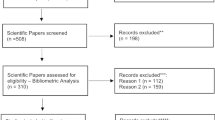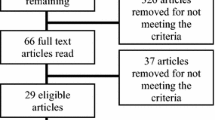Abstract
Although there is increasing public criticism of intensive livestock production, the market share of meat with an animal welfare standard exceeding legal requirements remains small. Food retailers, in their role as gatekeepers, can influence changes in production and consumption patterns. Their strategic role between farmers and consumers allows them to control commodity, information and value flow and therefore places them into a key position when it comes to the distribution of meat with a higher animal welfare standard. The aim of this explorative study is to identify factors which motivate food retailers to take on the marketing of products of increased animal welfare standards, in this case, pasture-based beef. Nine in depth-interviews were conducted with representatives of the food retail industry. The interviews took place in June 2018, followed a structured guideline and were transcribed verbatim. The transcripts were categorized and evaluated using qualitative content analysis. Results showed that food retailers are driven by both extrinsic and intrinsic motives. The main extrinsic motive is the perceived customer demand. Consciousness for animal welfare and the regional production cycles, including close connection between farmers and retailers are inherently intrinsic motives. Interestingly, the interviewed retailers show a high personal interest and moral obligation with regard to sourcing and marketing pasture-based beef. As such, this research finds innovative retailers, who take on a new role in sustainable food systems which exceed classical distribution functions and may have a considerable effect in transforming the food system.
Similar content being viewed by others
References
Aguilera, Ruth V., Deborah E. Rupp, Cynthia A. Williams, and Jyoti Ganapathi. 2007. Putting the S back in corporate social responsibility: a multilevel theory of social change in organizations. Academy of Management Review 32 (3): 836–863.
Bartels, Joe Machiel J. Reinders, and Mariet van Haaster-de Winter. 2015. Perceived sustainability initiatives: retail managers’ intrinsic and extrinsic motives. British Food Journal 117 (6): 1720–1736.
Boogaard, Birgit K. Simon J. Oosting, and Bettina B. Bock. 2006. Elements of societal perception of farm animal welfare: a quantitative study in the Netherlands. Livestock Science 104 (1–2): 13–22.
Brønn, Peggy S., and Deborah Vidaver-Cohen. 2008. Corporate motives for social initiative: legitimacy, sustainability, or the bottom line. Journal of Business Ethics 87: 91–109.
Caroll, Archie B., and Kareem M. Shabana. 2010. The business case for corporate social responsibility: a review of concepts, research and practice. International Journal of Management Reviews 12 (1): 58–105.
Cordano, Mark, and Irene H. Frieze. 2000. Pollution reduction preferences of U.S. environmental managers: applying Ajzen’s theory of planned behavior. Academy of Management Journal 43 (4): 637–641.
Esbjerg, Lars, Steve Burt, Hannah Pearse, and Viviane Glanz-Chanos. 2016. Retailers and technology-driven innovation in the food sector: caretakers of consumer interests or barriers to innovation? British Food Journal 118 (6): 1370–1383.
Fernkvist, Fredrik, and Lena Eskelund. 2014. Credence and the effect on consumer liking of food – a review. Food Quality and Preference 23 (Part C): 340–356.
Franz, Anabell Marie von Meyer, and Achim Spiller. 2010. Prospects for a european animal welfare label from the German perspective: supply chain barriers. International Journal on Food System Dynamics 4: 318–329.
Friedman, Milton. 1970. The social responsibility of business is to increase its profits. The New York Time Magazine 13 September 1970.
Fulponi, Linda. 2006. Private voluntary standards in the food system: the perspective of major food retailers in OECD countries. Food Policy. 31 (2006): 1–13.
Genier, Claudia Mike Stamp and Mark Pfitzer. 2009. Corporate social responsibility for agro-industries development. In: Agro-industries for development, ed. Carlos A. da Silva, Doyle Baker, Andrew W. Shepherd, Chakib Jenane, and Sergio Miranda-da-Cruz, 223–252. Bodmin: MPG Books Group.
Gjerris, Mickey, Christian Gamborg, and Henrik Saxe. 2016. What to buy? On the complexity of being a critical consumer. Journal of Agricultural and Environmental Ethics 29: 81–102.
Graafland, Johan, and Corrie Mazereeuw-Van der Duijn Schouten. 2012. Motives for corporate social responsibility. De Economist 160: 377–369.
Graafland, Johan, and Bert van de Ven. 2006. Strategic and moral motivation for corporate social responsibility. The Journal of Corporate Citizenship 22: 111–123.
Hall, Bronwyn H. 2002. The financing of research and development. Oxford Review of Economic Policy 18 (1): 35–51.
Hansen, Ursula. 1993. Ökologisches Marketing im Handel. In Eberhard Seidel, Heinz Strebel, ed. Betriebliche Umweltökonomie, 448–479. Wiesbaden: Gabler.
Hansson, Helena, and Carl J. Lagerkvist. 2015. Identifying use and non-use values of animal welfare: evidence from Swedish dairy agriculture. Food Policy 50: 36–42.
Herrmann, Wiebke 2019. Einheitliche Haltungskennzeichnung für Fleisch jetzt im Handel. Agrarheute. https://www.agrarheute.com/tier/einheitliche-haltungskennzeichnung-fuer-fleisch-handel-552820. Accessed 02 April 2019.
Honkanen, Pirjo Bas Verplanken, and Svein O. Olsen. 2006. Ethical values and motives driving organic food choice. Journal of Consumer Behavior 5 (5): 420–430.
Jones, Peter, Daphne Comfort, and David Hillier. 2007. What’s in store? Retail marketing and corporate social responsibility. Marketing Intelligence and Planning 25 (1): 17–30.
Kohlmüller, Matthias, and Tim Koch. 2018. Markt Bilanz – Vieh und Fleisch, ed. In AMI (Argrarmarkt Informationsgesellschaft). Bonn: Medienhaus Plump GmbH.
Lee, Ming - Dong P. 2008. A review of theories of corporate social responsibility: its evolutionary path and the road ahead. International Journal of Management Reviews 10 (1): 53–73.
Maloni, Michael J., and Michael E. Brown. 2006. Corporate social responsibility in the supply chain: an application in the food industry. Journal of Business Ethics 68 (1): 35–52.
Margolis, Joshua D., and James P. Walsh. 2003. Misery loves companies: rethinking social initiatives by business. Administrative Science Quarterly 48 (2): 268–305.
Mayring, Philipp. 2010 Qualitative Inhaltsanalyse – Grundlagen und Techniken. Weinheim and Basel: Beltz.
McWilliams, Abagail, and Donald Siegel. 2001. Corporate social responsibility: A theory of the firm perspective. The Academy of Management Review 26 (1): 117–127.
Miles, Morgan .P., and Jeffrey G. Covin. 2000. Environmental marketing: A source of reputational, competitive, and financial advantage. Journal of Business Ethics 23: 299–311.
Moewius, Joyce Peter Röhring, Diana Schaack, Christine Ramphold, Hans-Josef Brzukalle, Frank Gottwald, Karin Stein-Bachinger, Markus Wolter, and Jürn Sanders. 2018. Zahlen, Daten, Fakten – Bio-Branche 2018, ed. In BÖLW (Bund Ökologischer Lebensmittelwirtschaft e.V.). Berlin: Spree Print.
Padel, Susanne, and Carolyn Foster. 2005. Exploring the gap between attitudes and behavior: understanding why consumers buy or do not buy organic food. British Food Journal 107 (8): 606–625.
Papagiannakis, Giorgos, and Spyros Lioukas. 2012. Values, attitudes and perceptions of managers as predictors of corporate environmental responsiveness. Journal of Environmental Management 100: 41–51.
Piacentini, Maria, Lynn MacFadyen, and Douglas Eadie. 2000. Corporate social responsibility in food retailing. International Journal of Retail and Distribution Management 28 (11): 459–469.
Pirsich, Wiebke Louisa V. Hardenberg, and Ludwig Theuvsen. 2017. Eine empirische Analyse zum Angebot von Tierwohl-Fleisch in Fleischerfachgeschäften. Berichte über Landwirtschaft 95 (2).
Pullman, Madeleine.E., and Jesse Dillard. 2010. Value based supply chain management and emergent organizational structures. International Journal of Operations & Production Management 30 (7): 744–771.
Risius, Antje, and Ulrich Hamm. 2016. The effect of information on beef husbandry on consumers’ preference and willingness to pay. Meat Science 124 (2017): 9–14.
Rombach, Meike, and Vera Bitsch. 2015. Food movements in Germany: slow food, food sharing, and dumpster diving. International Food and Agribusiness Management Review 18 (3): 1–24.
Stern, Paul C. 2000. Toward a coherent theory of environmentally significant behavior. Journal of Social Issues 56 (3): 407–424.
Stockebrand, Nina, Nina S. Berner, and Achim Spiller. 2008. Regionalmarketing im Naturkostfachhandel. Göttingen: Cuvillier.
Tjärnemo, Heléne, and Liv Södahl. 2015. Swedish food retailers promoting climate smarter food choices – trapped between visions and reality? Journal of Retailing and Consume Services 24 (May): 130–139.
Valor, Carmen, Isabel Carrero, and Raquel Redondi. 2014. The influence of knowledge and motivation on sustainable label use. Journal of Agricultural and Environmental Ethics 27 (4): 591–607.
Van Loo Ellen J. Vincenzina Caputo Rodolfo M. Nayga and Wim Verbeke. 2014. Consumer’s evaluation of sustainability labels on meat. Food Policy 49(Part 1):137–150.
Weber, Klaus, Kathryn L. Heinze, and Michaela DeSoucey. 2008. Forage for thought: Mobilizing codes in the movement for grass-fed meat and dairy products. Administrative Science Quarterly 53 (3): 529–567.
Williams, Sarah, and Anja Schaefer. 2013. Small and medium sized enterprises and sustainability: managers’ values and engagement with environmental and climate change issues. Business Strategy and the Environment 22 (3): 173–186.
Acknowledgements
The authors greatfully ackowledge funding from the “Ministry of Food and Agriculture (BMEL)” and the “Ministry of Science and Arts” in Lower Saxony, Germany.
Author information
Authors and Affiliations
Corresponding author
Ethics declarations
Conflict of Interest
On behalf of all authors, the corresponding author states that there is no conflict of interest.
Additional information
Publisher’s Note
Springer Nature remains neutral with regard to jurisdictional claims in published maps and institutional affiliations.
Rights and permissions
About this article
Cite this article
Schulze, M., Spiller, A. & Risius, A. Food Retailers as Mediating Gatekeepers between Farmers and Consumers in the Supply Chain of Animal Welfare Meat - Studying Retailers’ Motives in Marketing Pasture-Based Beef. Food ethics 3, 41–52 (2019). https://doi.org/10.1007/s41055-019-00040-w
Accepted:
Published:
Issue Date:
DOI: https://doi.org/10.1007/s41055-019-00040-w




